Cancer care continuum: Prevention > Detection > Diagnosis > Treatment > Survivorship
Prevention is the first phase in the cancer care continuum. Many of our faculty members’ research revolves around prevention, and working to educate the public of ways to reduce cancer risk. This message is communicated through our many community events and mass media campaigns. Our faculty focus their prevention messaging on modifiable lifestyle behaviors community members can change to reduce their cancer risk, while increasing their health knowledge.
Research topics
- Diet
- Limited alcohol consumption
- Physical activity
- Sun protection
- Tobacco control
- HPV vaccine
- Cancer screenings
- Chemoprevention
Related research projects
Browse the prevention-related projects below to learn about past and ongoing research led by faculty in the Division of Public Health Sciences in the Department of Surgery at Washington University School of Medicine in St. Louis.
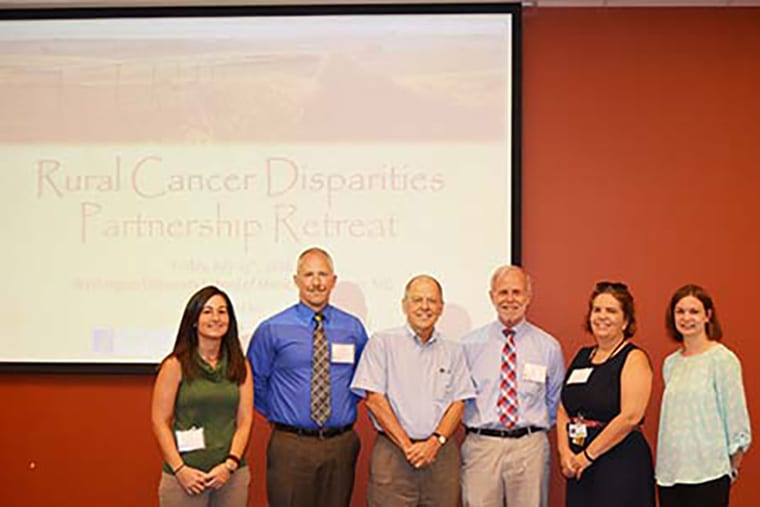
Addressing Rural Cancer Health Disparities: SCC-SIUSM Partnership
Faculty involved: Graham Colditz, Aimee James, Erin Linnenbringer, Mary Politi, Siobhan Sutcliffe
The partnership between The Southern Illinois University School of Medicine and Siteman Cancer Center investigates rural cancer disparities and ways to help educate, train, and implement effective strategies to reduce the disparities seen in rural communities.
Child asthma exacerbation: Role of caregiver risk beliefs
Faculty Involved: Erika Waters, Jean Hunleth
Drs. Waters, Hunleth, and colleagues will used a mixed methods research design to gain in-depth understanding of the psychological and social factors that shape the decision making process that caregivers use to care for their asthmatic children. This project will provide evidence-based behavioral strategies to improve the lives of 6.2 million children who are affected by asthma.
Chronic Diseases Related to Obesity
Faculty involved: Su-Hsin Chang, Graham Colditz
The project will study obesity, the coexistence of obesity-related chronic diseases, and mortality in the United States in terms of life expectancy and lifetime healthcare.
Communicating Multiple Disease Risks
Faculty involved: Erika Waters, PhD, MPH
This study, Communicating Multiple Disease Risks: A Translation of Risk Prediction Science, translates epidemiological data about five major health consequences of insufficient physical activity into a visual display that conveys individualized risk estimates in a way that is understandable and meaningful to diverse lay audiences and motivates physical activity behavior.
Community Engagement in Research
Faculty involved: Mary Politi, Bettina Drake, Esther Lu, Aimee James, Jean Hunleth, Erika Waters, PhD, MPH, Vetta Sanders Thompson, Graham Colditz
This line of research strives to engage all members of the community throughout the research process to help navigate the healthcare process.
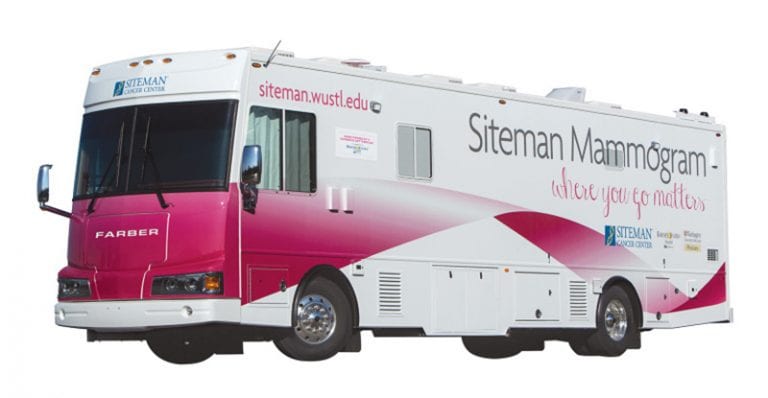
Community Outreach: Mobile Mammography Van
Faculty involved: Bettina Drake, Graham Colditz, Su-Hsin Chang
This project worked towards increasing and providing effective mammography screening for women in the St. Louis area.
Dietary Habits in Rural Guatemala Adolescent Women
Faculty involved: Yikyung Park
This project addresses poor dietary and physical activity habits in rural Guatemalan adolescent women.
Disparities in Adherence to Adjuvant Therapy for DCIS and Outcomes
Faculty involved: Ying Liu
Ying Liu, MD, PhD, assistant professor of surgery, has received a three-year, research scholar grant from the American Cancer Society to study disparities associated wtih ductal carcinoma in situ (DCIS).
Disparities in Young-Onset Colorectal Cancer Survival
Faculty involved: Yin Cao
Dr. Yin Cao received a Young Investigator Award from the National Comprehensive Cancer Network. This two-year award will support Dr. Cao in her work addressing colorectal cancer survival disparities among patients diagnosed under age 50 through integrating patients, treatment, and tumor molecular characteristics.
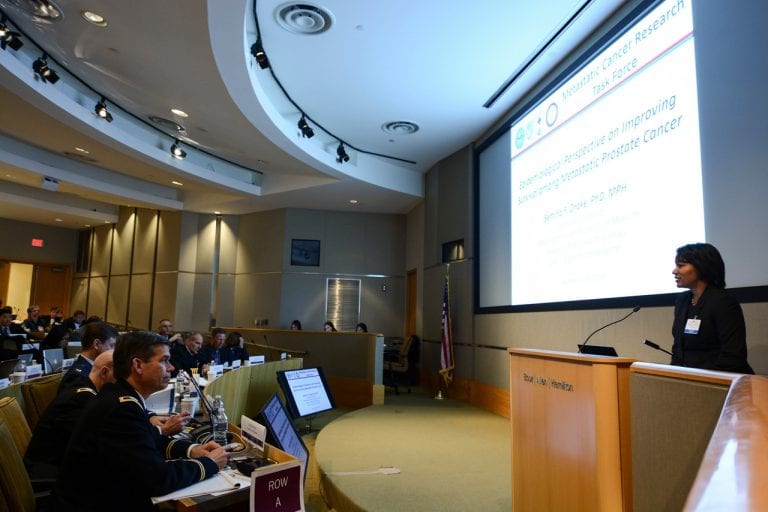
Effect of Diabetes & Obesity on Disparities in Prostate Cancer Outcomes
Faculty involved: Bettina Drake
In this Department of Defense project, Dr. Drake and colleagues utilize a prostate cancer cohort from the VA hospitals to explore the association between obesity and prostate cancer recurrence, and its outcome on patient health.
Etiology of Young-Onset Colorectal Cancer
Faculty involved: Yin Cao
About 11% of colon cancers (CRC) and 18% of rectal cancers occur in adults younger than 50 years. In contrast to the recent population decline in CRC incidence in adults aged 50 and above, CRC incidence has increased in all 5-year age groups between 20 and 49 years. The majority of young-onset CRCs are diagnosed symptomatically with more advanced tumors. Dr. Cao is leading research to discover the genomic landscape of young-onset CRCs and the underlying lifestyle factors that may drive the rising incidence.
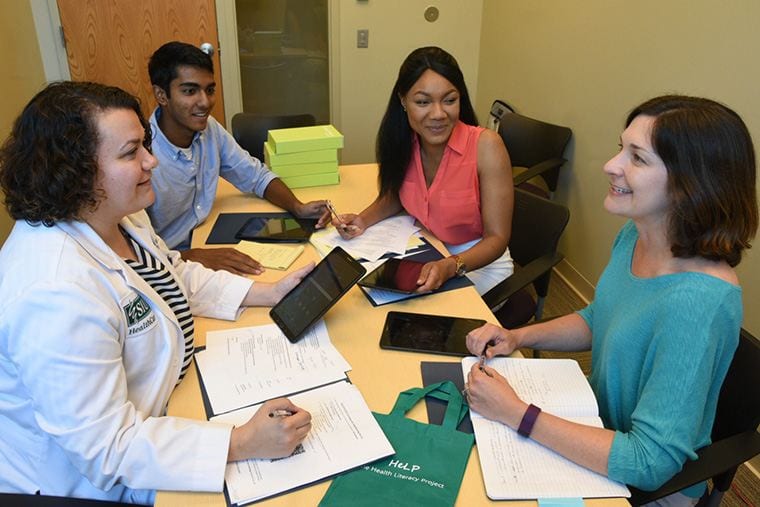
Health Literacy in the Context of Kidney Cancer & Smoking
Faculty involved: Erin Linnenbringer
This pilot project examined health literacy in the context of kidney cancer and smoking among rural populations in southern and central Illinois.
Improving Rural Colon Cancer Screening
Faculty involved: Aimee James, Esther Lu, Graham Colditz, Jean Hunleth
This project will address colorectal cancer mortality rates in rural Southern Illinois by improving the screening process and follow-up for patients who have a positive fecal blood test (FOBT, FIT).
Integration of Genomic & Social Science in Breast Cancer Disparities Research
Faculty involved: Erin Linnenbringer
This four-year project examines existing data to investigate potential interplay among state-level inequalities (defined by race and/or gender), individual-level health behaviors, and genomic markers associated with estrogen receptor negative (ER-) breast cancer.
Optimizing the Impact of Aspirin for Chemoprevention
Faculty involved: Yin Cao, Graham Colditz, Aimee James
Yin Cao, ScD, MPH, and colleagues will analyze the efficacy of aspirin for chemoprevention in colorectal cancer cases.
Precision-based Aspirin Chemoprevention
Faculty involved: Yin Cao
Dr. Yin Cao is leading efforts surround aspirin-based chemoprevention to inform future multi-level interventions to improve the implementation of precision aspirin primary prevention strategies across systems, providers, and patients.
Program Evaluation of Community Engagement
Faculty involved: Aimee James, Graham Colditz, Vetta Sanders Thompson, Bettina Drake, Esther Lu, Jean Hunleth
Community-based participatory research (CBPR) helps give community members voice in academic research. These projects evaluated current and past CBPR projects to discovery future best practices.
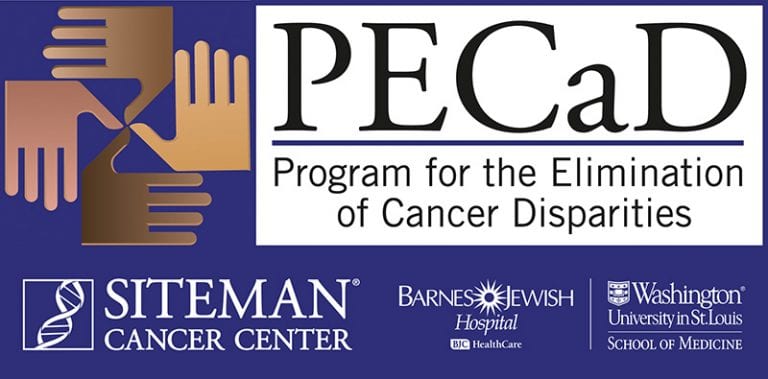
Program for the Elimination of Cancer Disparities (PECaD)
Faculty involved: Graham Colditz, Aimee James, Bettina Drake, Vetta Sanders Thompson
The mission of Siteman Cancer Center’s Program for the Elimination of Cancer Disparities (PECaD) is to create a national model for eliminating local and regional disparities in cancer education, prevention and treatment. Through a community advisory committee and community partnerships, PECaD works with community representatives to find solutions that reduce disparities.
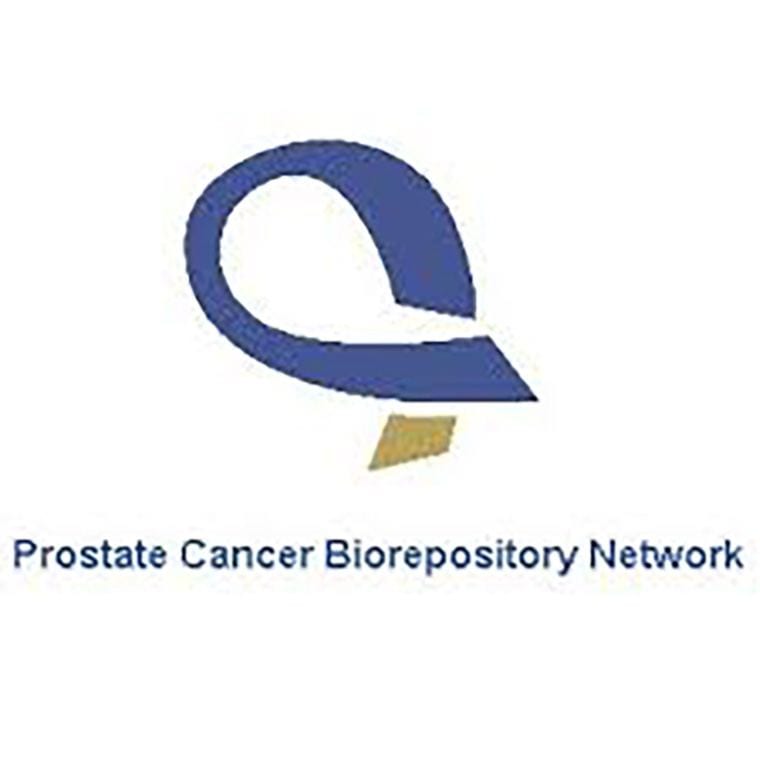
Prostate Cancer Biorepository Network
Faculty involved: Bettina Drake
The Prostate Cancer Biorepository Network (PCBN) is a Department of Defense (DOD)/ Congressionally Directed Medical Research Program (CDMRP) bioresource that provides tissue and other biospecimens to all prostate cancer investigators.
Prostate Cancer Prospective Cohort
Faculty involved: Bettina Drake, Graham Colditz
The long-term goal of this collaboration between Dr. Drake and The St. Louis Mens Group Against Cancer is to be able to identify patients with increased risk for dying of prostate cancer while they are still treatable.
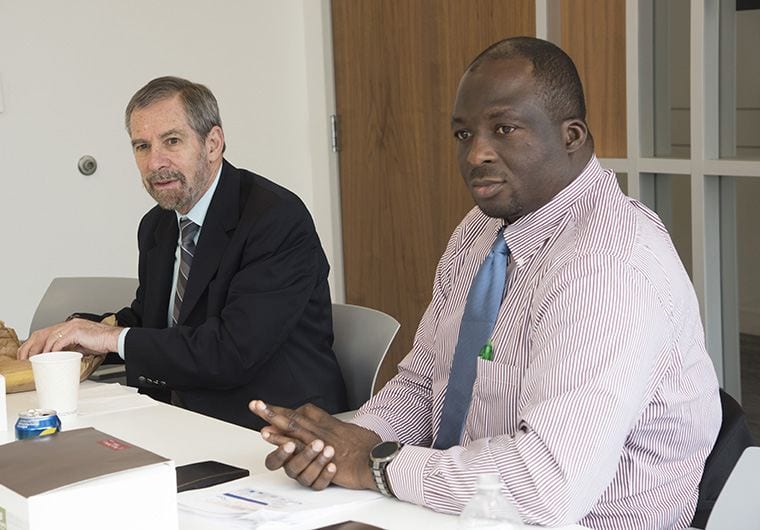
RANK Pathway and Mammographic Breast Density
Faculty involved: Adetunji Toriola, Graham Colditz, Rosy Luo
A very dense breast on mammogram is one of the strongest risk factors for breast cancer, and many women in the United States have extremely dense breasts. There is, however, very limited knowledge on how to modify breast density to reduce breast cancer risk
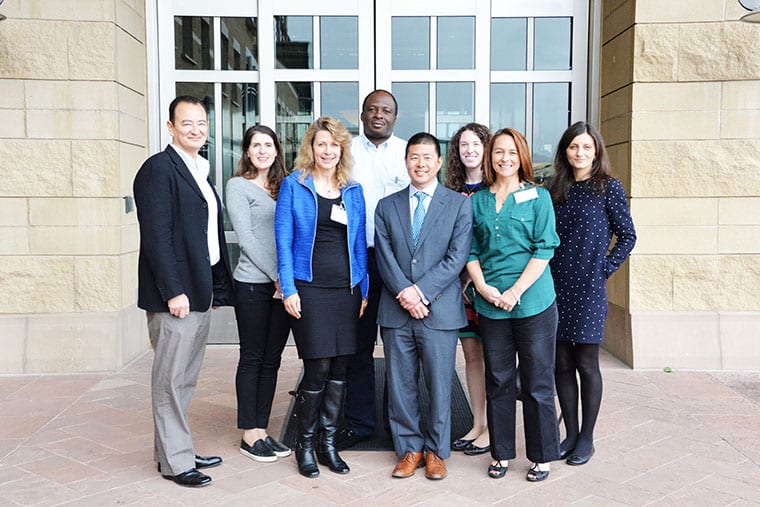
The ColoCare Study
Faculty involved: Adetunji Toriola, Graham Colditz
The ColoCare Study follows a cohort of men and women who have been newly diagnosed with colorectal cancer (stages I-IV). This project’s main interest is in quality-of-life and in rates of cancer recurrence and death.
The New Face of Homelessness: A CRFT Project
Faculty involved: Vetta Sanders Thompson
Alumni of the first Community Research Fellows Training (CRFT) program created this project, which focused on identifying the health needs and concerns of homeless women ages 45-64 living in the St. Louis metropolitan area.
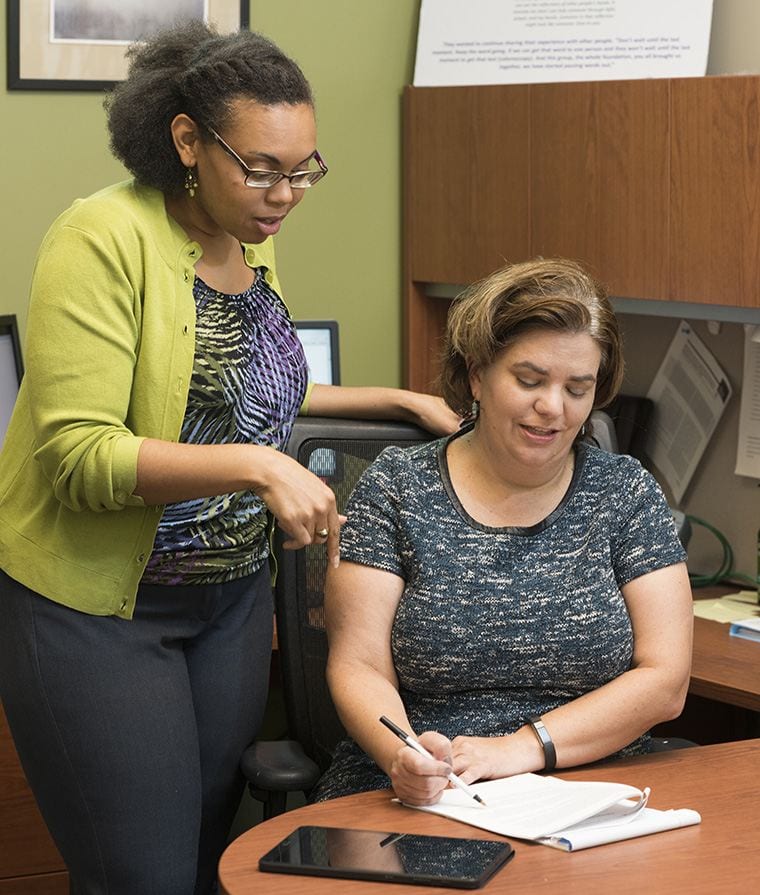
Understanding & Addressing Cost Related Nonadherence to Medication
Faculty involved: Aimee James
Nonadherence can have significant negative health effects for the individual and contribute to increases in hospitalization, healthcare costs, and mortality. Adherence is a complex issue, but cost and affordability of medication is a common and critical barrier.The short-term objective is to identify how patients and healthcare providers approach affordability and adherence and use those data to refine and pilot test an intervention promoting patient-provider discussion about cost, affordability, and adherence. The long- term objective is to deliver interventions to reduce cost-related nonadherence.

Your Disease Risk
Faculty involved: Graham Colditz, Erika Waters, PhD, MPH, Adetunji Toriola, Bettina Drake, Siobhan Sutcliffe, Yikyung Park
Personalized health assessment tool that allows people to see their risk for common chronic conditions, such as diabetes, heart disease, stroke, and cancer risk.